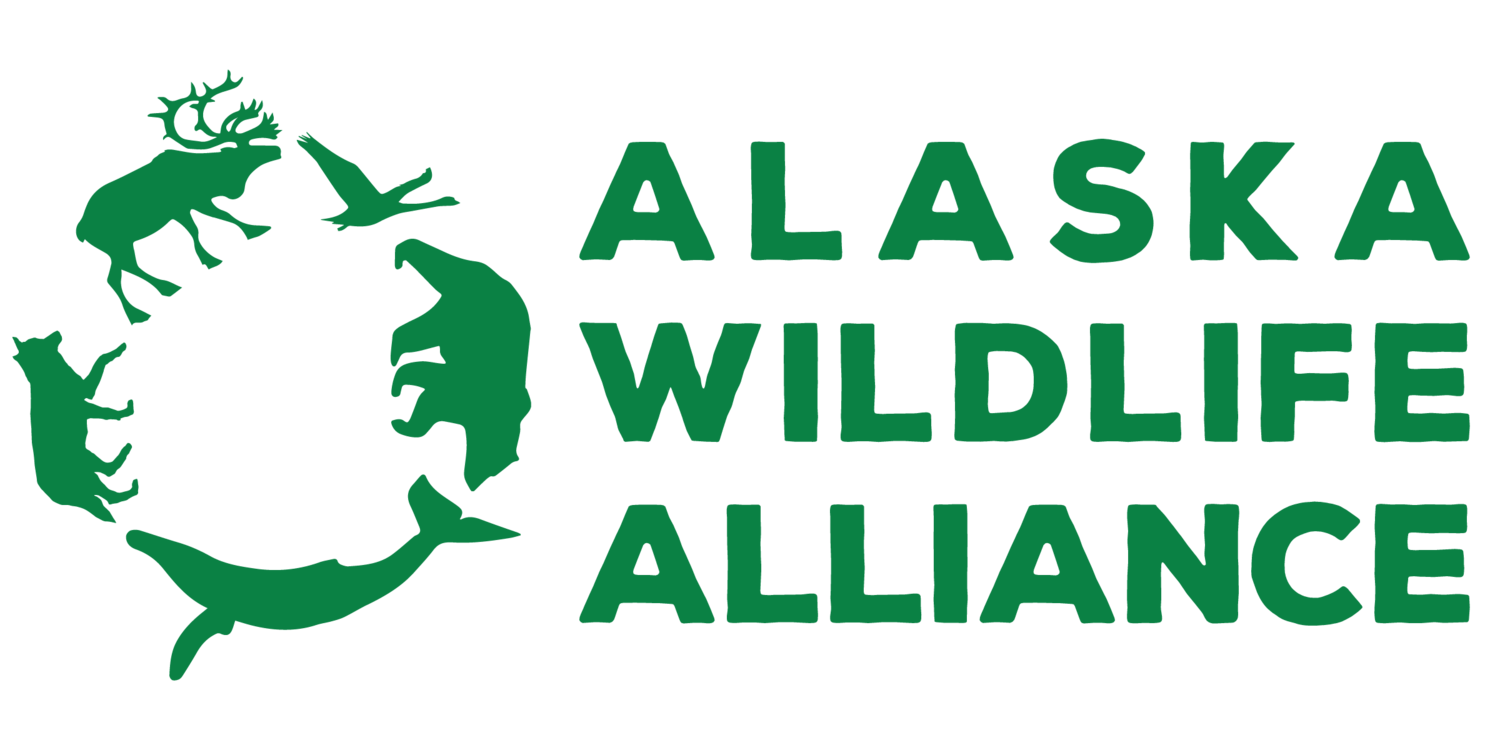Alaskan Polar Bears
Protecting polar bear habitat through advocacy, community outreach, and litigation.
The largest bear in the world and the Arctic's top predator, polar bears are a powerful symbol of the strength and endurance of the Arctic. The polar bear's Latin name is Ursus maritimus, meaning "sea bear" - an apt name for this species which spends most of it’s time on sea ice. In fact, Polar bears are classified as marine mammals because they predominantly live in a marine environment. In the United States, Alaska is home to two polar bear subpopulations.
On May 15, 2008, the polar bear was listed as threatened throughout its range under the Endangered Species Act (ESA). It was assigned this designation due to the fact that is likely to become endangered in the future. The sea ice habitat utilized by polar bears is declining throughout the species’ range and likely to continue declining in the future. The Southern Beaufort Sea stock of Polar bears in Alaska has already declined by nearly 50% since the early 1980s.
OUR STRATEGIES TO PROTECT ALASKA’S POLAR BEARS
AWA defends Alaska’s polar bears by protecting their habitat. We do this through regulatory advocacy, community outreach, and litigation.
In 2021, we filed a lawsuit to protect threatened Southern Beaufort Sea polar bears in Alaska.
The Alaska Oil and Gas Association asked the U.S. Fish and Wildlife Service to allow oil and gas operators in Alaska to harass polar bears and walruses in the Beaufort Sea and on the North Slope during a range of oil and gas activities, including exploration, construction, extraction, and transportation.
“This new rule allows oil and gas companies to harass almost half of the polar bears left in the Southern Beaufort Sea population, double what Fish and Wildlife Service previously allowed. Mind you, these polar bears have already declined by 40 percent in the past few decades and continue to face habitat loss. There are only 900 left, which wouldn't even fill one-seventh of the seats in the Sullivan Arena.”
Nicole Schmitt, executive director of Alaska Wildlife Alliance
The regulation allows oil and gas companies to harass polar bears while carrying out broad and intensive industrial activities for five years, starting in 2021. Under the regulation, oil operators can harass bears in ways that compel the animals to delay or stop feeding, hunting, tending young, interacting with other bears, and generally focusing on survival. This harassment includes things like scaring bears off with noise, equipment and vehicles, and disrupting polar bear denning or eating sites.
For denning cubs, who are weak and need time in their dens with their mothers, this harassment can be fatal. Fish and Wildlife Service’s own science presented a 95 percent probability that the North Slope’s oil and gas activities will be lethal to polar bears over the regulation’s five-year period. The agency ignored this harm entirely; instead, it essentially issued the regulation as if the latest facts, science, and on-the-ground climate impacts do not exist.
Our lawsuit charges Fish and Wildlife Service with violating the National Environmental Policy Act, the Marine Mammal Protection Act, and the Endangered Species Act.
The law firm Trustees for Alaska filed the lawsuit on behalf of Alaska Wildlife Alliance and six other groups and represents five clients in the case: the Alaska Wildlife Alliance, Alaska Wilderness League, Defenders of Wildlife, Environment America, and the Sierra Club, which also represents itself. Trustees is co-counseling with the Center for Biological Diversity, which represents itself and Friends of the Earth.
Click here to read the full complaint.












